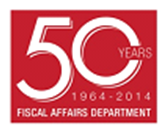
Corruption is a hot topic in international circles these days, and particularly with respect to country public finance systems. The IMF Fiscal Affairs Department has made a contribution to understanding how improvements in public financial management systems can help fight corruption.
While not an 'idiots guide to corruption', a recent FAD staff paper (Dorotinsky, William and Shilpa Pradhan), published in "The Many Faces of Corruption: Tracking Vulnerabilities in the Sectors" (World Bank, 2007), explores the conditions of PFM systems that enable corruption to flourish, the ways corruption commonly manifests itself, and develops a model for assessing the vulnerability of country PFM systems to corruption.
The authors find that "Countries with better-performing PFM systems have lower corruption perception indexes," and that "Countries with stronger participation of external stakeholders in the public spending have lower corruption perception indexes."
The paper argues there are five systemic factors that increase the risk of corruption in PFM (four of which are internal to the executive branch). These factors are:
- weak PFM capacity—of systems and processes comprehensive and accurate record keeping, reporting, and accounting as well as the capacity of financial management staff;
- inadequate internal controls—absence of or weak processes providnig reasonable assurance regarding achievement of organizational objectives in effectiveness and efficiency of operations, reliability of financial reporting, and compliance with statutes and policies;
- limited internal fiscal transparency—Internal transparency of fiscal information ensures that information is recorded and reported accurately and in a timely manner and that it is available to executives and decision makers.
- weak management and supervision—Management responsibility for overseeing PFM system performance, using information, holding others to account, or accepting responsibility for failure of the system to operate properly provides strong incentives for deterrence of fraudulent behavior. The role of senior management in formalizing and institutionalizing the response to fraud and other corrupt practices is essential to mitigate the risk of fraudulent behavior. And,
- weak external accountability in public spending—including legislatures and public accounts committees, national audit offices, civil society, the media, and NGOs.
The five-point model offers a structured way of analyzing country PFM systems, identifying the weakest link, and developing strategies for improving PFM systems to minimize opportunities for corruption. The model is applied to Ghana, with suggestions for a reform path. In developing reforms, the authors caution that "In identifying entry points for participation of external stakeholders in the budget process, it is essential to balance external demand-side pressures for increased accountability with supply-side measures to improve PFM."
As the paper notes, "The challenge is creating a robust public finance system that maximizes detection and remediation of corruption, thereby minimizing opportunities for corruption." This has high relevance for government officials wanting to tackle the issue, for agencies providing technical assistance, and for country PFM reform strategy development.
Posted by Bill Dorotinsky





